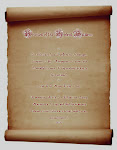Saturday, December 29, 2007
A gift
Take a look at these photos!
Set the slide show viewer to 15 or 20 seconds, and allow yourself the time to figure out the riddles hidden in the game. Note how it tells a different story everytime you play back the loop because it gradually allows you to develop a story from it that develops as you read through more and more of the quotes shown occasionally within the slide show.
Do tell me what you make of it, please!
at
04:00
0
comments
![]()
Labels: Back stage
Friday, December 28, 2007
Thursday, December 27, 2007
Diminutive knowledges

First time I passed the gates of Academia was in August 1995. I had a three year period of absence from the university, but aside from that I have spent my adult time mainly in academic company. Shouldn't that mean that I must be quite knowledgeable? It propably does. However, I am burdened with the fact that academic knowledge seems so diminutive, so underdeveloped that I can't really make good use of it. On the other hand, the knowledges that do make themselves available are deemed diminutive by those whose norms of language I am comitted to following.
Sure, I have encountered a piece of literature or two that caught my interest and greatly added to my pool of knowledge in a plesurable fashion. However, I've also spend an awful amount of time scanning pages containing nothing worth the effort.
When setting out to produce valuable knowledge, I find myself overburdened with knowledge deemed poor by those whom I work for. I am confronted on a daily basis with the fact that those whom I wish to address cannot be reached through the vocabulary accepted by those whom I rely on in attempting to achieve my PhD-degree.
My most treasured knowledges stem from uncertified realms of everyday life, including dreams, mediated entertainment, and social relations. In other words: the richest of my available research fields are the knowledges of my own life. Pretending that what I set out to study academically is not part of these knowledges of my own life would be ridiculous. However, claiming ownership of that knowledge seem to have difficult circumstances in an academic environment trying to force their own ideas onto you.
That is why I now turn to Isabelle Stengers in order to understand how to disregard the claims that science should belong to a fully isolated domain with no contact to anything else but their controlled world. I want to make use of my diminutive knowledges and treat my academic tools and theories as parts of this knowledge pool. Determining whether academic knowledge is distinct from 'common knowledge' is in itself a power game including the stance that the words we use to capture the hybrids are just agents in a proces of purification of the discourses on nature and society. Knowing that I cannot escape playing a power game, I enroll into this point of view. We cannot escape purification, but we can gain awareness of how to create better pure.
Accepting the diminutive knowledges of everyday life is one important step. Obviously, reversals won't work. Accepting diminutive knowledges does not mean denouncing academic knowledge. Rather, I accept that both good and bad quality stuff is to be found in both sorts of knowledges.
One could then ask whether that which I call diminutive knowledges and that which others deem academic, are really two distinct domains. And they are and are not. Depending on where in the process of purification they're encountered. I learned that from Bruno Latour in We Have Never Been Modern.
Now, how do I make the link between this strand of thoughts and the paper in which I am comitted to consider mainly the body of postphenomenological philosophy of technology laid out be Peter-Paul Verbeek in What Things Do? I might name my paper What Books Do.
at
04:13
0
comments
![]()



